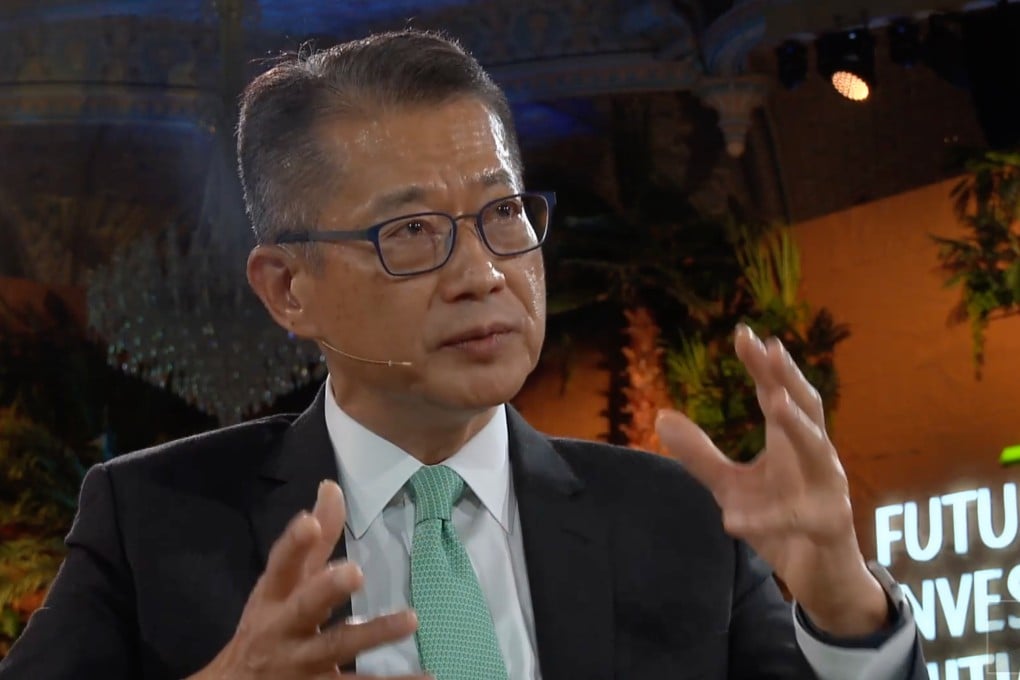Advertisement
2023 is ‘year of hope’ for Hong Kong, says Financial Secretary Paul Chan, as city vies to reclaim former status
- Chan went all out to convince financial bigwigs gathered in Saudi Arabia that Hong Kong is clawing its way back to its pre-pandemic global hub status
- ‘We had been out of touch with the rest of the world because of Covid,’ Chan admitted
Reading Time:3 minutes
Why you can trust SCMP
33

Financial Secretary Paul Chan Mo-po described 2023 as “a year of hope and opportunities” for Hong Kong as he went all out to convince financial bigwigs from around the world that the city is clawing its way back to pre-pandemic normality.
Speaking on Tuesday at a conference in Saudi Arabia, he told investors to rest assured that Hong Kong will continue to “function as a free international financial centre with the best international regulatory regime”.
Chan said a government plan to invest US$8 billion in attracting new talent will help reposition the city as not just a centre of global finance, but as a major innovation and technology hub.
Advertisement
He admitted the city’s standing had suffered during the pandemic.
“We had been out of touch with the rest of the world because of Covid,” Chan said. “Although there have been uncertainties and challenges externally, 2023 is a year of hope and a year of opportunities.”
The three-day Future Investment Initiative Institute Conference, which took place in Riyadh, brought together leaders from across the world to discuss the future of finance in a post-pandemic environment.
Advertisement
Select Voice
Choose your listening speed
Get through articles 2x faster
1.25x
250 WPM
Slow
Average
Fast
1.25x
